Diploma in Psychogerontology and Neuropsychology of the Elderly
Fechas
Registro
This program aims to provide participants with a rigorous and in-depth approach to the main aspects of Psychogerontology and Neuropsychology, emphasizing interdisciplinary work.
Through this course, participants will learn about normal and pathological aging development, different care models, and identify some tools to work with this group, both at the neuropsychological level and in the treatment of mental health problems.
This diploma arises as a response to a growing demand for quality care for the elderly and the scarcity of specialized programs.
This program will lay the groundwork for future specific training to intervene in psycho-affective and neuropsychological disorders of aging.
The diploma consists of three modules, which can be taken and passed independently, to obtain a certificate for each one. To obtain the Diploma certificate, the participant must pass all three modules.
Online
Total duration of the course is 120 academic hours spread over 16 weeks.
90 hours in real-time virtual mode with the professor via Zoom.
30 hours of student's autonomous work activities.
Tuesdays and Thursdays from 18:00 to 20:00
Saturday from 8:30 to 12:30
Early Payment Rate: $00 (00 Jan)
General Public Rate: $00
Group Rate (3 people): $00
USFQ ALUMNI Rate: $00
General Description
General Objective:
To educate professionals from various fields of care in the main aspects of old age and aging, at a neuropsychological level and concerning mental health issues.
To train participants to provide comprehensive mental health care that allows for an impact on the quality of life of the elderly population and their families.
Learning Outcomes:
| # | Learning Outcomes | Level |
|---|---|---|
| 1 | Identify the characteristics and warning signs present in the aging process. | High |
| 2 | Understand the main affective, cognitive, and physical symptoms common in old age. | High |
| 3 | Acquire knowledge of specific tools and types of assessment for neuropsychological problems and psychopathologies in the elderly. | Medium |
| 4 | Learn about the main protocols for the treatment of neuropsychological and psychopathological problems. | Medium |
Targeted to:
Health and social care professionals (nurses, doctors, psychologists, social workers, occupational therapists)
Professionals who complete the program will be able to:
- Understand the aging process in different areas of human development.
- Differentiate between the characteristics of healthy and pathological aging.
- Implement therapeutic processes necessary for the care of the elderly, including cognitive stimulation and person-centered care.
- Enhance their professional practices with updated knowledge in psychology and gerontology by implementing multidisciplinary knowledge in their area of expertise.
- Identify specific tools and types of assessment for neuropsychological problems and psychopathologies in the elderly.
- Know the main protocols for the treatment of neuropsychological and psychopathological problems.
Modality
Total duration of the course is 120 academic hours spread over 16 weeks.
- 90 hours in virtual real-time mode with the instructor via Zoom.
- 30 hours of autonomous student work activities.
The teaching methodology of the course is based on the Blended Flexible Learning model and project-based learning. The instructor will conduct real-time sessions with students, encouraging active participation where students can raise questions and provide comments. The more frequent these interventions are, the richer the collective learning will be. Sessions will focus on particular topics or specific case studies, aiming to provide students with a comprehensive understanding of theory as well as its relevance to the current industry context.
In addition to this, all participants will engage in 6 hours of autonomous learning on the USFQ E-Learning platform, where they will find materials provided by the instructor. They will watch videos, read short articles, participate in forums, or engage in brief discussions on various topics covered in the course.
Contenido
Module 1 | Introduction to Aging
Learning Objective: Identify the characteristics and warning signs present in the aging process.
Understand the main affective, cognitive, and physical symptoms common in old age
Module Content:
- Aging, Ageism, and Psychosocial Aspects
- Physical, Cognitive, Social, Psychological, and Functional Changes in Aging
- Challenges of Aging and Considerations
- Changes and Transitions in Old Age (Retirement, Care Needs, Assumption of the Role of Family Caregiver)
- Autonomy vs. Dependence and Disability
- Neuropsychology of Healthy and Pathological Aging
- Neuropsychology of the Elderly: Cognitive Functions (Memory, Attention, Executive Functions) Class 1
- Neuropsychology of the Elderly: Cognitive Functions (Memory, Attention, Executive Functions) Class 2
- Introduction to Mild Cognitive Impairment and Dementias (Neurodegenerative Dementias)
- Risk Factors and Protective Factors in Aging
- Psychopathology of the Elderly
Module 2 | Evaluation (Neuropsychology and Psychopathological Dementia)
Learning Objective: Acquire knowledge of specific tools and types of assessment for neuropsychological problems and psychopathologies in the elderly.
Module Content:
- EPI (Initial Psychological Assessment) for Healthy Elderly and those with Pathologies)
- Mild Cognitive Impairment
- Evaluation and Neuropsychological Diagnosis of Mild Cognitive Impairment
- Alzheimer's Disease
- Neuropsychological Evaluation in Alzheimer's Disease
- Vascular Dementia
- Neuropsychological Evaluation in Vascular Dementia
- Lewy Body Dementia
- Neuropsychological Evaluation in Lewy Body Dementia
- Frontotemporal Dementia
- Neuropsychological Evaluation in Frontotemporal Dementia
- Neurorehabilitation in Mild Cognitive Impairment and Dementias
- Diagnosis of Depression in the Elderly
- Diagnosis of Anxiety in the Elderly
- Bipolarity and Other Disorders in the Elderly
Module 3 | Intervention
Learning Objective: Learn about the main protocols for the treatment of neuropsychological problems and psychopathologies
Module Content:
Neuropsychological Intervention: 20 hours
- Cognitive Intervention in Persons with Dementia
- Implementation of Active Aging Programs
- Cognitive Stimulation Workshops in Healthy Elderly (Selection and Creation of Material for Cognitive Stimulation)
- Cognitive Stimulation Programs for Elderly with MCI and Dementia
- Non-pharmacological Management of Behavioral Alterations in Dementias
- Environmental Management: Current Vision on Day Care Centers and Residential Care (Dementia Villages, AI, Robinson's Framework in Colombia)
- Introduction to the ACP Model
- Practical Application of the ACP Model in Different Contexts
- Assistance Services for Persons with Dementias and Intervention with Families of Persons with Dementia
- Forum: Interdisciplinary Work for Intervention: Involved Professionals and Their Role
Psychopathological Intervention: 20 hours
- Individual and Group Psychotherapy in Healthy Elderly
- Treatment of Depression in the Elderly
- Treatment of Anxiety in the Elderly
- Treatment of Bipolarity and Other Disorders in the Elderly
- Approach to End of Life and Good Dying
- Self-care in Old Age
- Adaptation to Aging and Its Challenges: Integration of Self, Sense of Life, Identity Construction, Life Satisfaction, and Integration.
- Life Projects, Quality of Life in Old Age - Key Points: Special Guest (Elderly)
- Healthy Lifestyle and Healthy Habits in Old Age
Course Evaluation
The weighting of each component is distributed as follows:
| Category | Description | Percentage of Final Grade |
|---|---|---|
|
Attendance and Participation |
Participation during classes will be assessed: questions, comments, cameras on |
20% |
|
Integrative Project of Each Module |
Each module will have an integrative project |
20% |
|
Case Analysis |
Participants must analyze a case related to the module topic in each module | 20% |
|
Final Exam |
Final Exam for each module |
40% |
Certificate Issuance
Approval Certificate
Parameters for Issuing the Approval Certificate:
Participants must achieve a minimum of 80% attendance to the program and an overall score of 80% to access the approval certificate.
In case of not passing the program, the Universidad San Francisco de Quito cannot issue the certificate to the participant.
Schedule
Start Date: July 18, 2024
End Date: October 30, 2024
Schedule:
- Class Days: Tuesday and Thursday from 6:00 PM - 8:00 PM and Saturday from 8:30 AM - 12:30 PM
*The schedule may undergo date and content modifications.
| Week | Month | Day | Duration (h) | Schedule | Module | Topics | Professor | |
| 1 | July | 18 | Thursday | 1 | 6:30 PM - 7:30 PM | Module 0 | Session 0. Introductory Session. General information, instructor and participant introductions | All professors |
| 20 | Saturday | 2 | 8:30 AM - 10:30 AM | Module 1/ Course 1 | ||||
| 2 | 23 | Tuesday | 2 | 6:00 PM - 8:00 PM | ||||
| 25 | Thursday | 2 | 6:00 PM - 8:00 PM | |||||
| 27 | Saturday | 4 | 8:30 AM - 12:30 PM | |||||
| 3 | 30 | Tuesday | 2 | 6:00 PM - 8:00 PM | ||||
| August | 1 | Thursday | 2 | 6:00 PM - 8:00 PM | ||||
| 3 | Saturday | 4 | 8:30 AM - 12:30 PM | |||||
| 4 | 6 | Tuesday | 2 | 8:30 AM - 12:30 PM | ||||
| 5 | 20 | Tuesday | 2 | 6:00 PM - 8:00 PM | Module 2/ Course 2 | |||
| 22 | Thursday | 2 | 6:00 PM - 8:00 PM | |||||
| 24 | Saturday | 4 | 8:30 AM - 12:30 PM | |||||
| 6 | 27 | Tuesday | 2 | 6:00 PM - 8:00 PM | ||||
| 29 | Thursday | 2 | 6:00 PM - 8:00 PM | |||||
| 31 | Saturday | 4 | 8:30 AM - 12:30 PM | |||||
| 7 | September | 3 | Tuesday | 2 | 6:00 PM - 8:00 PM | |||
| 5 | Thursday | 2 | 6:00 PM - 8:00 PM | |||||
| 7 | Saturday | 4 | 8:30 AM - 12:30 PM | |||||
| 8 | 10 | Tuesday | 2 | 6:00 PM - 8:00 PM | ||||
| 12 | Thursday | 2 | 6:00 PM - 8:00 PM | |||||
| 14 | Saturday | 2 | 8:30 AM - 10:30 AM | |||||
| 9 | 24 | Tuesday | 2 | 6:00 PM - 8:00 PM | Module 3/ Course 3 | |||
| 26 | Thursday | 2 | 6:00 PM - 8:00 PM | |||||
| 28 | Saturday | 4 | 8:30 AM - 12:30 PM | |||||
| 10 | October | 1 | Tuesday | 2 | 6:00 PM - 8:00 PM | |||
| 3 | Thursday | 2 | 6:00 PM - 8:00 PM | |||||
| 5 | Saturday | 4 | 8:30 AM - 12:30 PM | |||||
| 11 | 8 | Tuesday | 2 | 6:00 PM - 8:00 PM | ||||
| 12 | 15 | Tuesday | 2 | 6:00 PM - 8:00 PM | ||||
| 17 | Thursday | 2 | 6:00 PM - 8:00 PM | |||||
| 19 | Saturday | 4 | 8:30 AM - 12:30 PM | |||||
| 13 | 22 | Tuesday | 2 | 6:00 PM - 8:00 PM | ||||
| 23 | Wednesday | 2 | 6:00 PM - 8:00 PM | |||||
| 24 | Thursday | 2 | 6:00 PM - 8:00 PM | |||||
| 26 | Saturday | 4 | 8:30 AM - 12:30 PM | |||||
| 14 | 29 | Tuesday | 2 | 6:00 PM - 8:00 PM | ||||
| 30 | Wednesday | 2 | 6:00 PM - 8:00 PM | |||||
Instructors
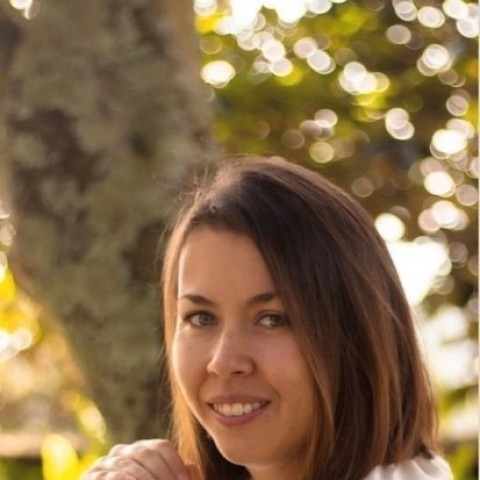
Paloma Sotomayor
Bilingual neuropsychologist with a specialization in the diagnosis of Mental, Neuropsychiatric, and Neuropsychological Disorders. Extensive experience in neuropsychological assessment and diagnosis of dementias and other cognitive impairment syndromes, childhood and adolescence disorders, pre- and post-surgical evaluation in Epilepsies, etc. Vast experience as a university lecturer and in specialized courses. Conference speaker and author of several chapters related to neuropsychology.
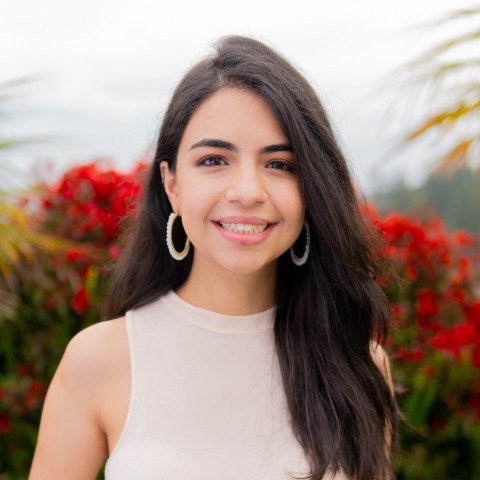
Valeria Macias
- Psychologist with experience in neurocognitive stimulation processes with child, adolescent, adult, and elderly populations. Training in neuropsychology of dementia and aging. Application of the Person-Centered Care Model in comprehensive interventions for patients, families, and formal and informal caregivers.
- Psychologist from the International University of Ecuador.
- Master's in Gerontology and Person-Centered Care Model (c) - International University of Valencia
- Intervention Director - SOMA
- Secretary - Venciendo Fronteras Foundation
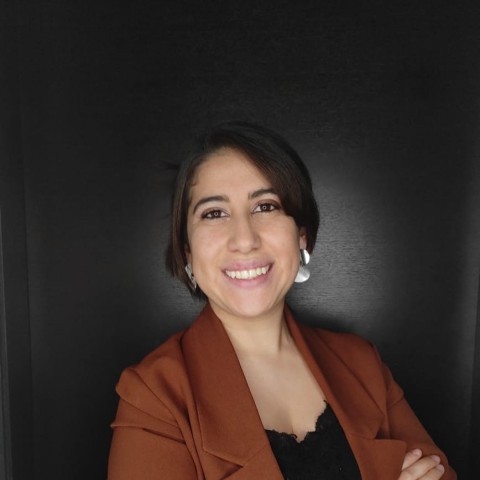
Soledad Guerra
- Clinical Psychologist from the Pontifical Catholic University of Ecuador and Master's in Psychogerontology from the Complutense University of Madrid.
- She has worked in various government portfolios (MSP-STPTV/MLM) providing care, developing, designing, and supporting projects to address various social issues focused on comprehensive care for vulnerable and priority groups: elderly, people with disabilities, children, and adolescents. She has extensive experience in psychological assessment and psychotherapeutic processes with adults and the elderly.
- Part-time lecturer at USFQ
- Co-founder of SAGI comprehensive gerontological care services. Day center project aimed at raising awareness and empowering the elderly and their family members or caregivers in various aspects of healthy aging.
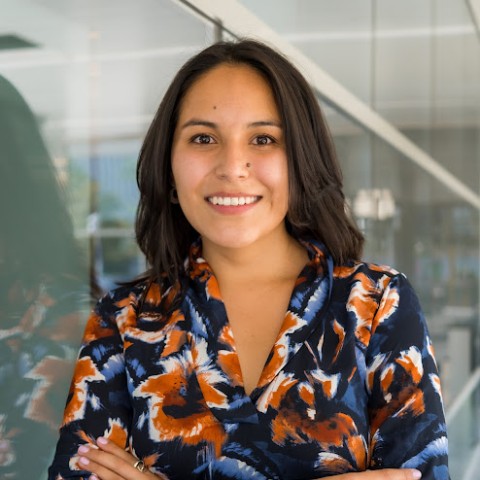
María Camila Parra
- Clinical Psychologist with a subspecialization in Educational Psychology from the Universidad San Francisco de Quito USFQ (Ecuador).
- Master's in Psychogerontology from the University of Salamanca USAL (Spain).
- International Doctorate in Psychology from the University of Salamanca USAL (Spain).
- With over 5 years of experience in individual and group care for the elderly and their family caregivers. Additionally, she has developed and implemented intergenerational interventions, as well as studies on different housing options for the elderly. Her research focuses on the reality and adaptation to daily life of post-family caregivers of elderly individuals in situations of dependence.
- Full-time lecturer at the Faculty of Health Sciences of the International University of Valencia VIU (Spain).
- Collaborating lecturer at the Faculty of Psychology of the University of Salamanca USAL (Spain).
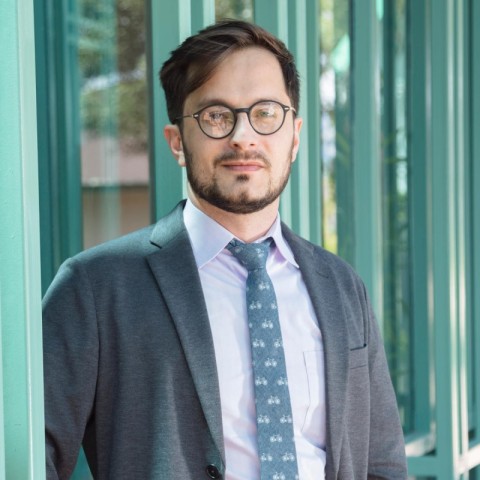
Jonathan Guillemot
Specialist in Clinical Geriatrics. Comprehensive management of elderly adult pathology, focused on maintaining functionality and quality of life for patients. Interest in the cognitive aspect of aging, with emphasis on the diagnosis and management of Dementia. Geriatric Palliative Care. Medical Surgeon, - Currently at Pontifical Catholic University of Ecuador, Central Hospital of the Red Cross San José and Santa Adela. Spain. Master's in Palliative Care, - Currently at University of Valladolid, Spain.
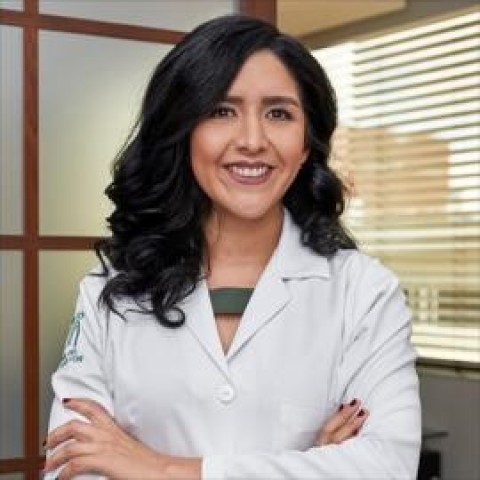
Evelyn Campoverde
Specialist in Geriatrics, with a primary focus on diagnosis and treatment of chronic and common diseases in older adults, applicative care, preventive treatments for successful aging. Physician – Central University of Ecuador Geriatrics Specialist - University of the Republic Uruguay Diploma - Psychopharmacology in the elderly person - University of Business and Social Sciences UCES Lecturer, Pontifical Catholic University of Ecuador Geriatric Physician Associate, Metropolitan Hospital. Founder, Elderly Medicine Geriatrician, Carlos Andrade Marín Hospital of Specialties Ecuadorian Society of Geriatrics and Gerontology SECUGG
Registration
Early Payment Rate: $300 (Jan 19)
General Public Rate: $345
Group Rate (3 people): $300
USFQ ALUMNI Rate: $315
Payment for the program can be made through the following methods:
STEP 1: Make the Payment
Bank Transfer or Counter Payment
Account Details:
Payable to Universidad San Francisco de Quito
Banco Bolivariano
Current Account No. 5075003350
(Tax ID: 1791836154001)Payable to Universidad San Francisco de Quito
Banco Pichincha
Current Account No. 3407330004
(Tax ID: 1791836154001)
Credit Card
Click on the following PAY HERE and complete the information requested by the form. Upon completion, you will be automatically registered in the system.
With Banco de Pichincha or Banco de Guayaquil credit cards, you can access the following financing options: 3 and 6 months interest-free, 9 and 12 months with interest.
STEP 2: Confirm Your Payment
If you made the payment via Bank Transfer or Deposit, please send a copy of the deposit slip (scanned) and your personal details (full names, ID number, phone number, and address) to the following email: rordonez@usfq.edu.ec
* If you require an invoice with different details from the participant's, please specify the following details in the email (company name, tax ID/ID number, phone number, address, and email).
If you made the payment with Credit Card, it is not necessary to confirm your payment, as the system will automatically register your details.
STEP 3: Registration Confirmation
You will receive a registration confirmation email, containing relevant course information.
* The program coordination reserves the right to suspend or reschedule the activity if it does not have the minimum required number of students or for reasons of force majeure. In such cases, the total amount of money will be refunded to enrolled students as soon as possible.

